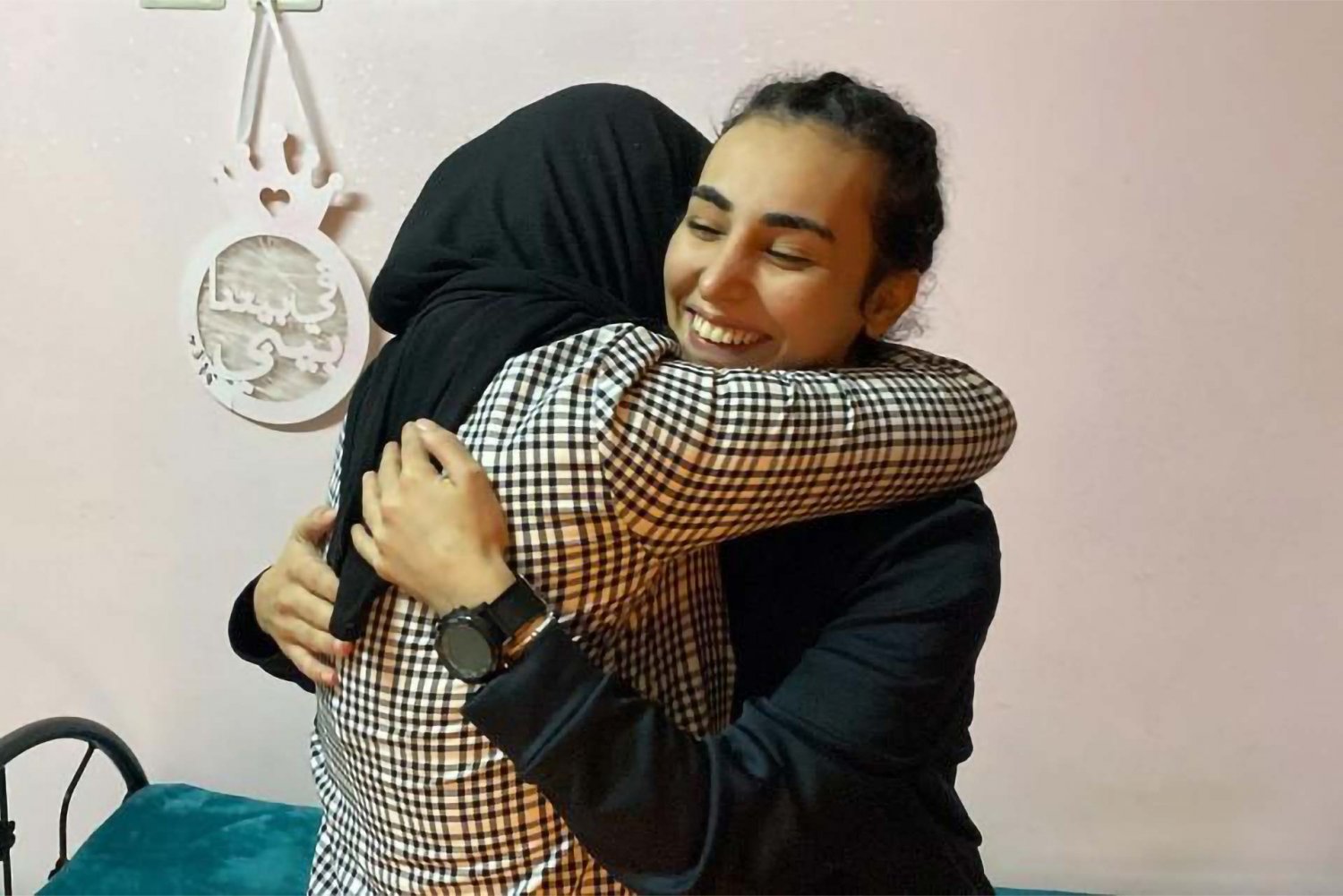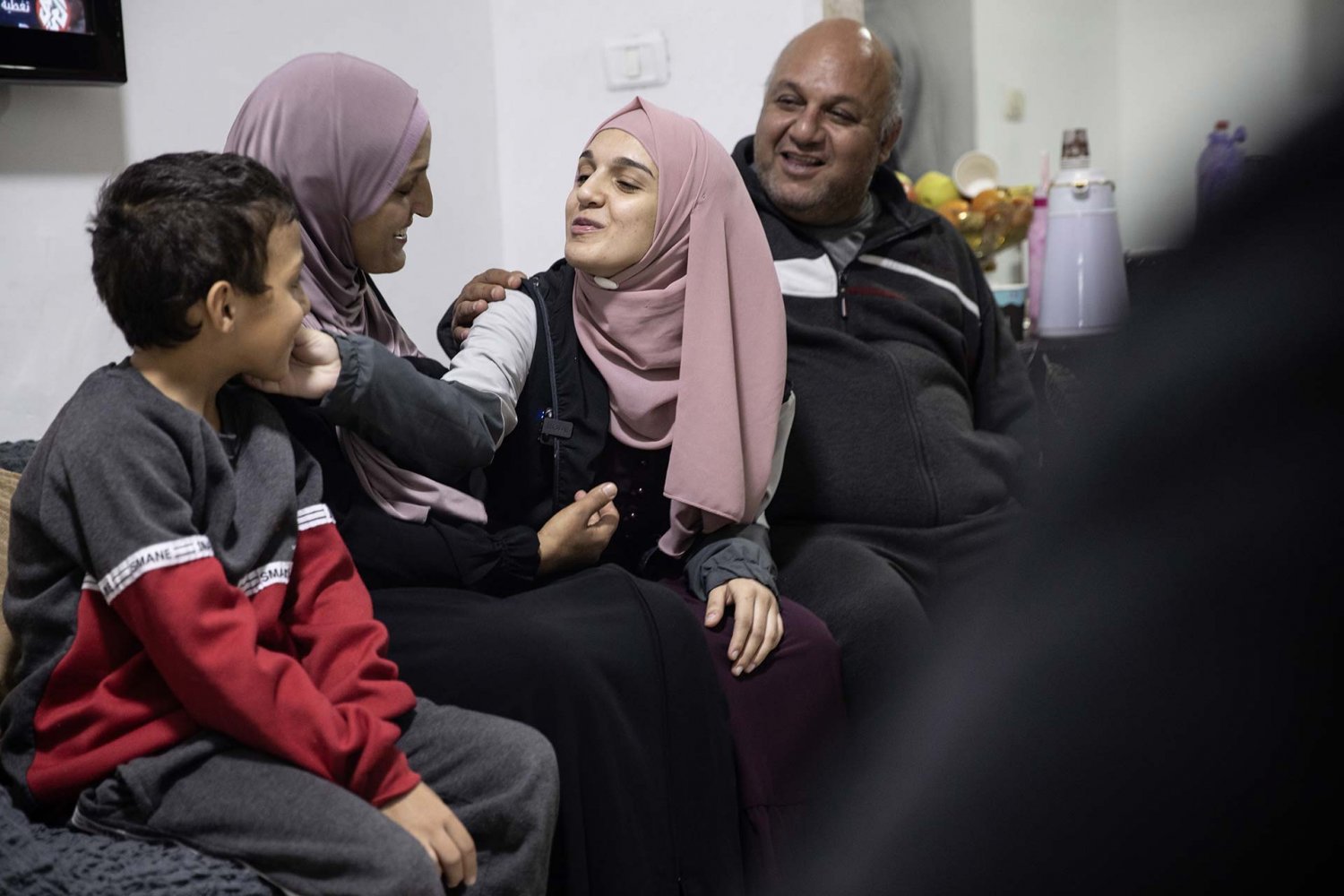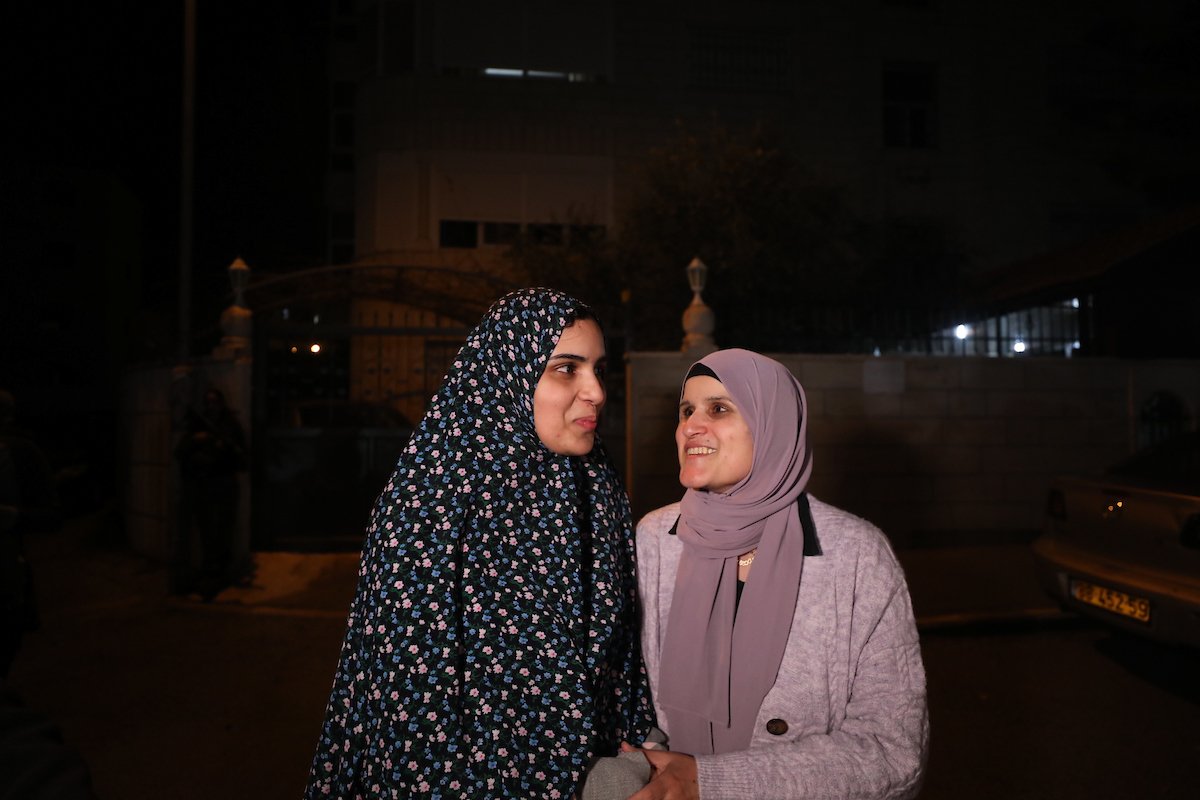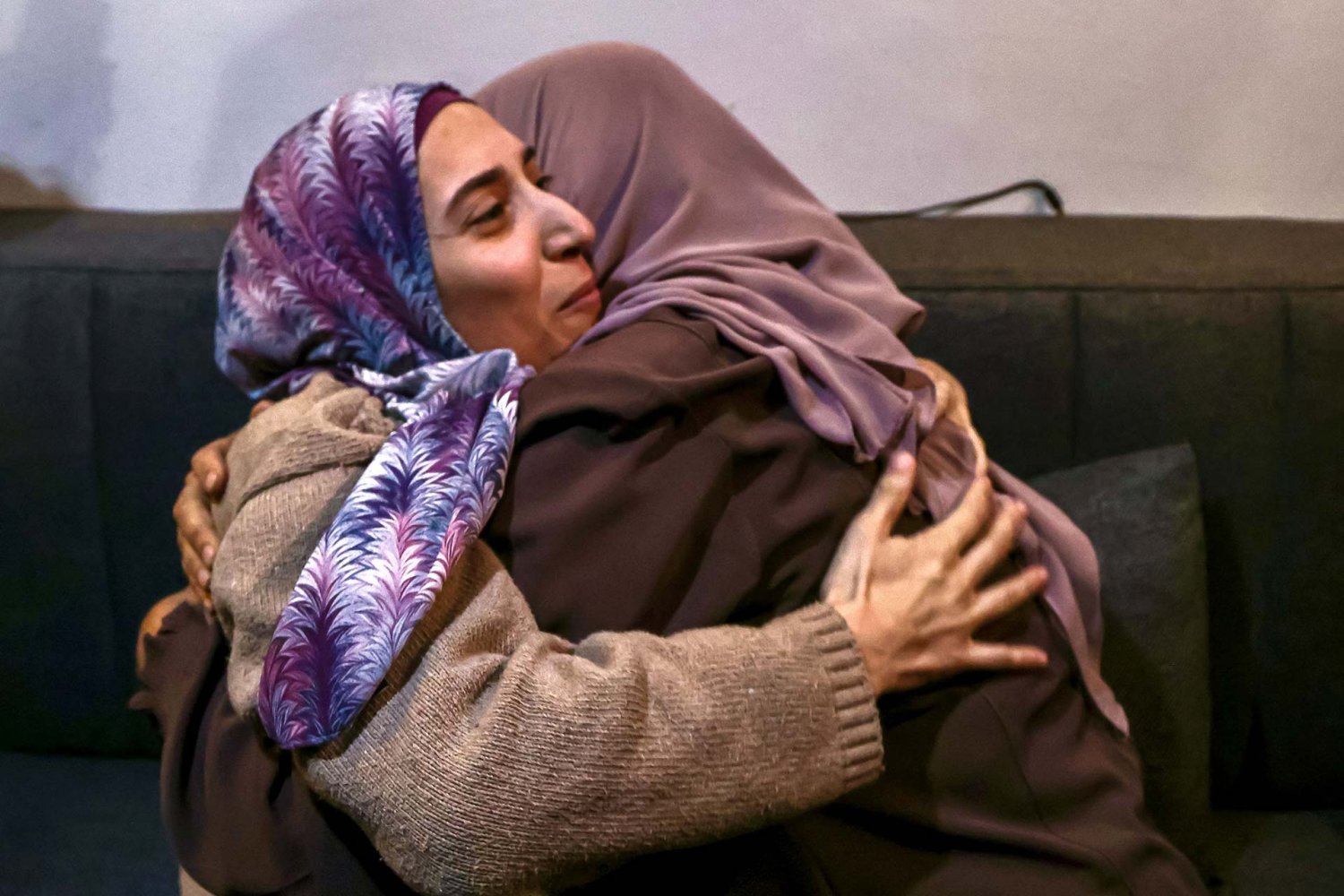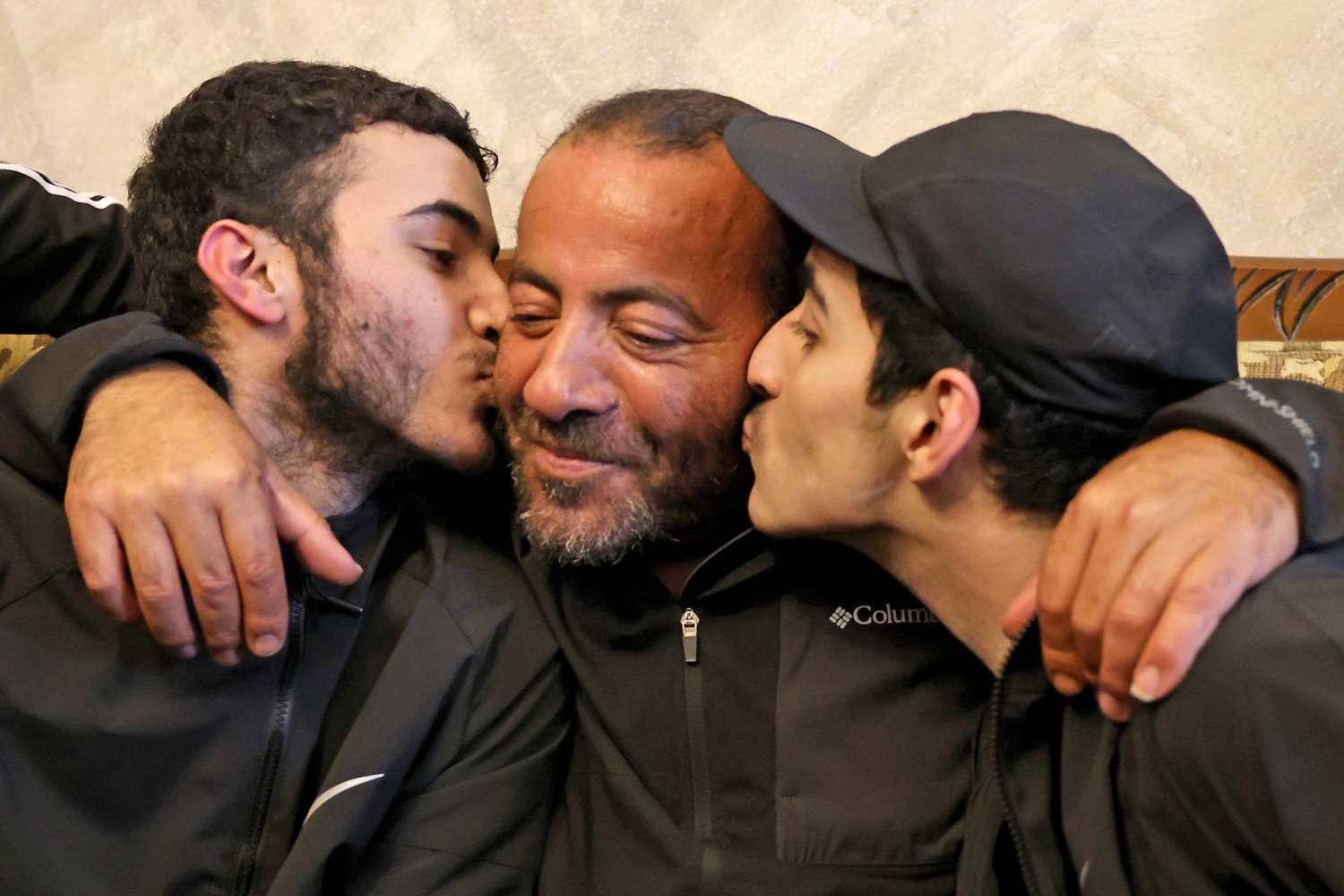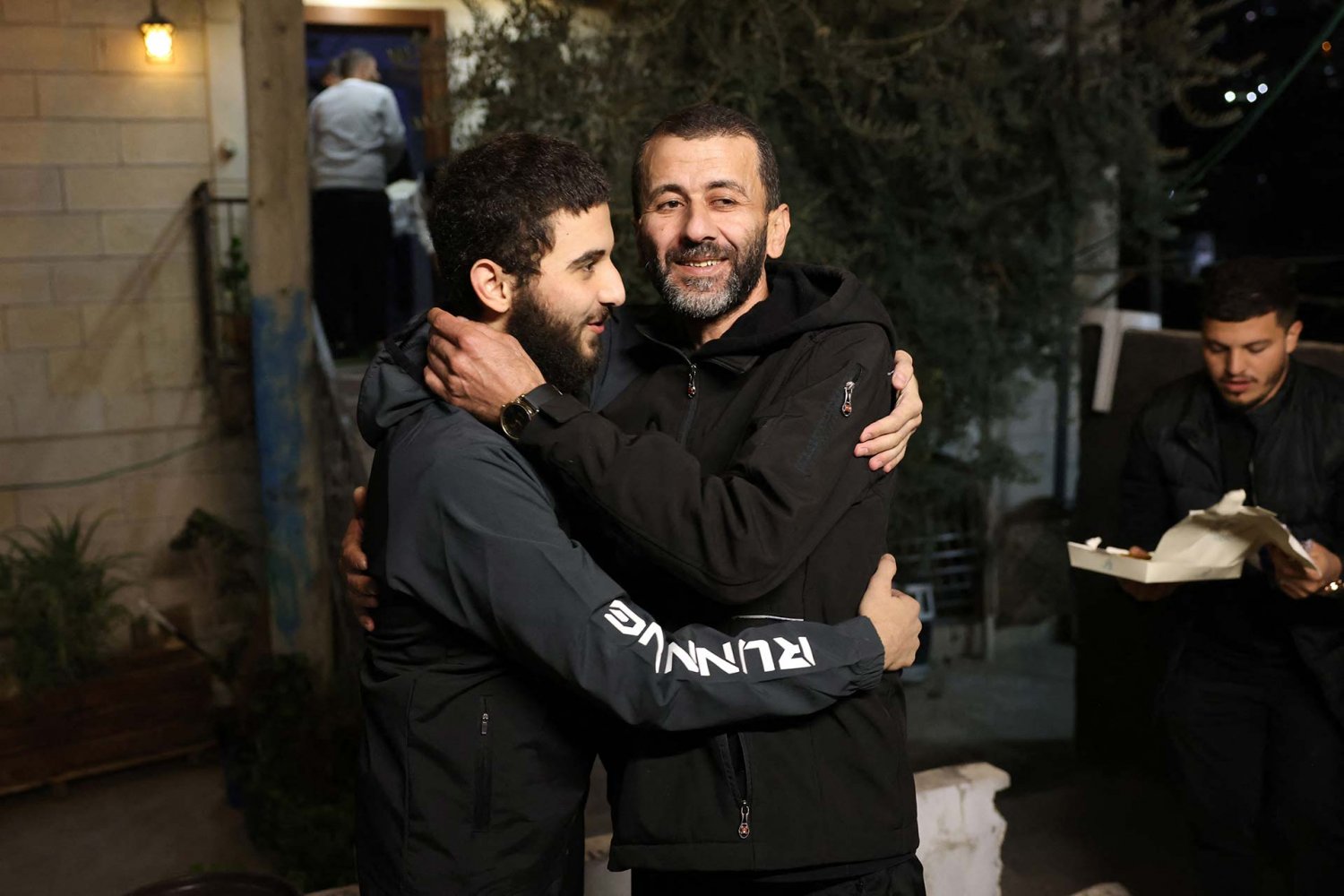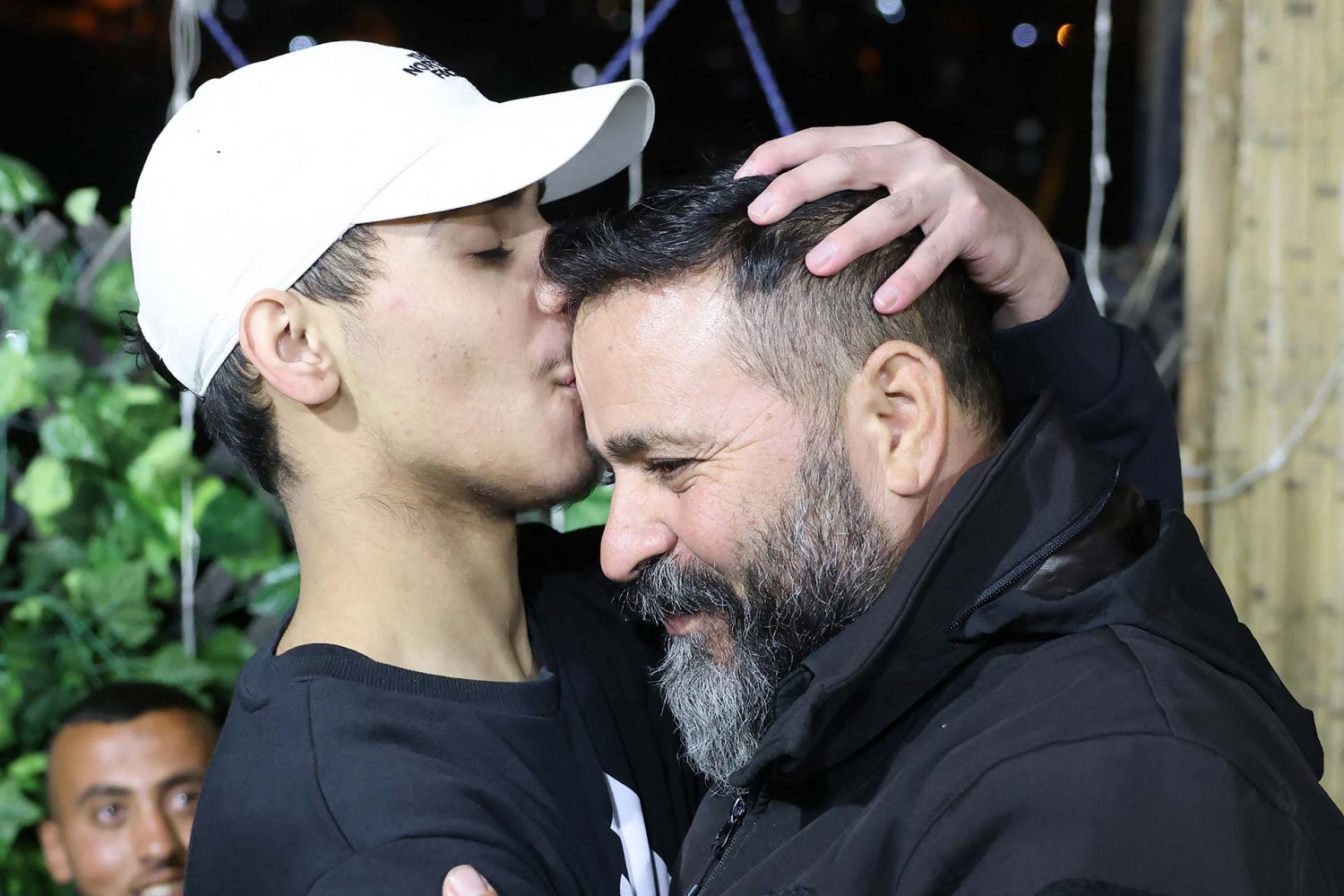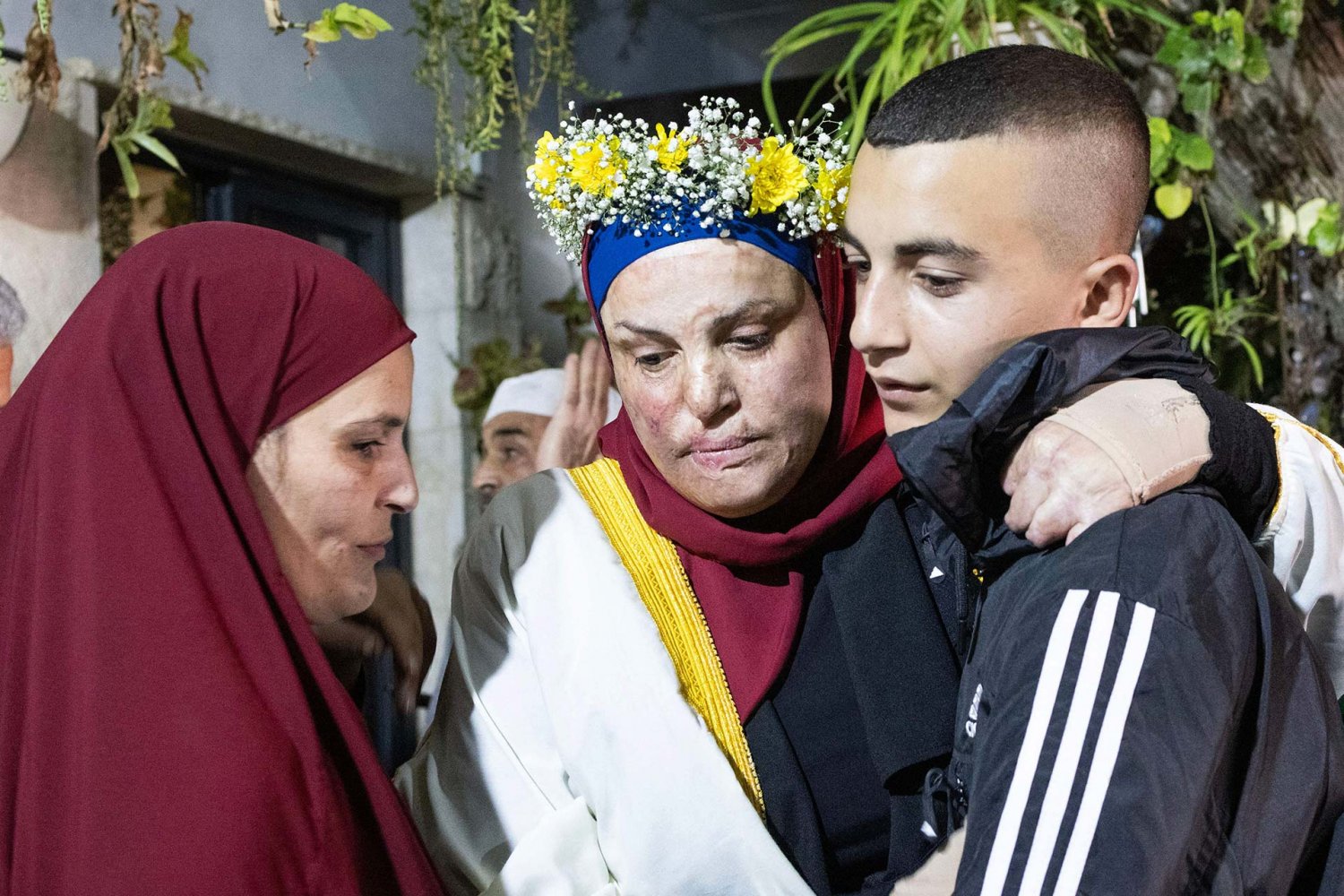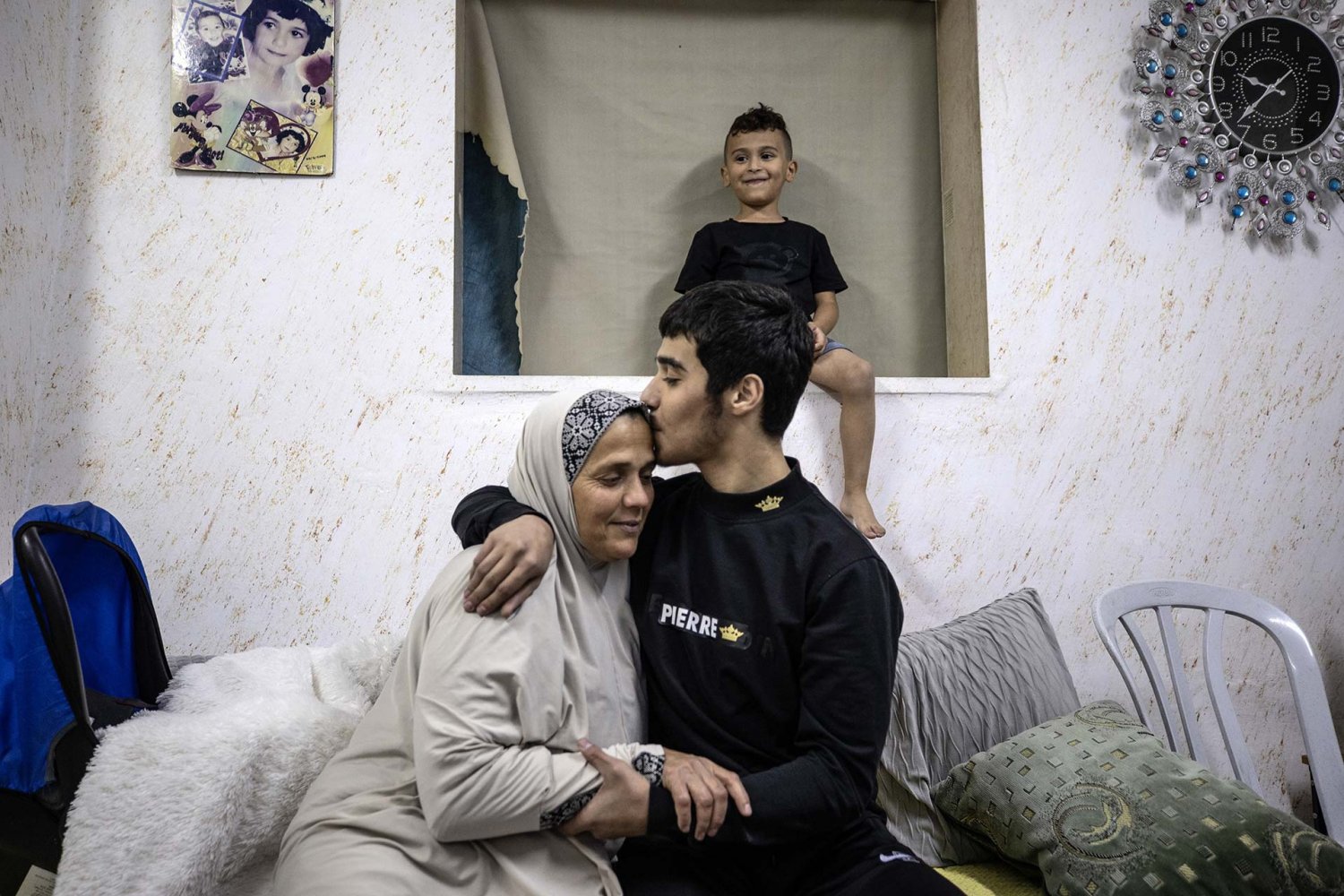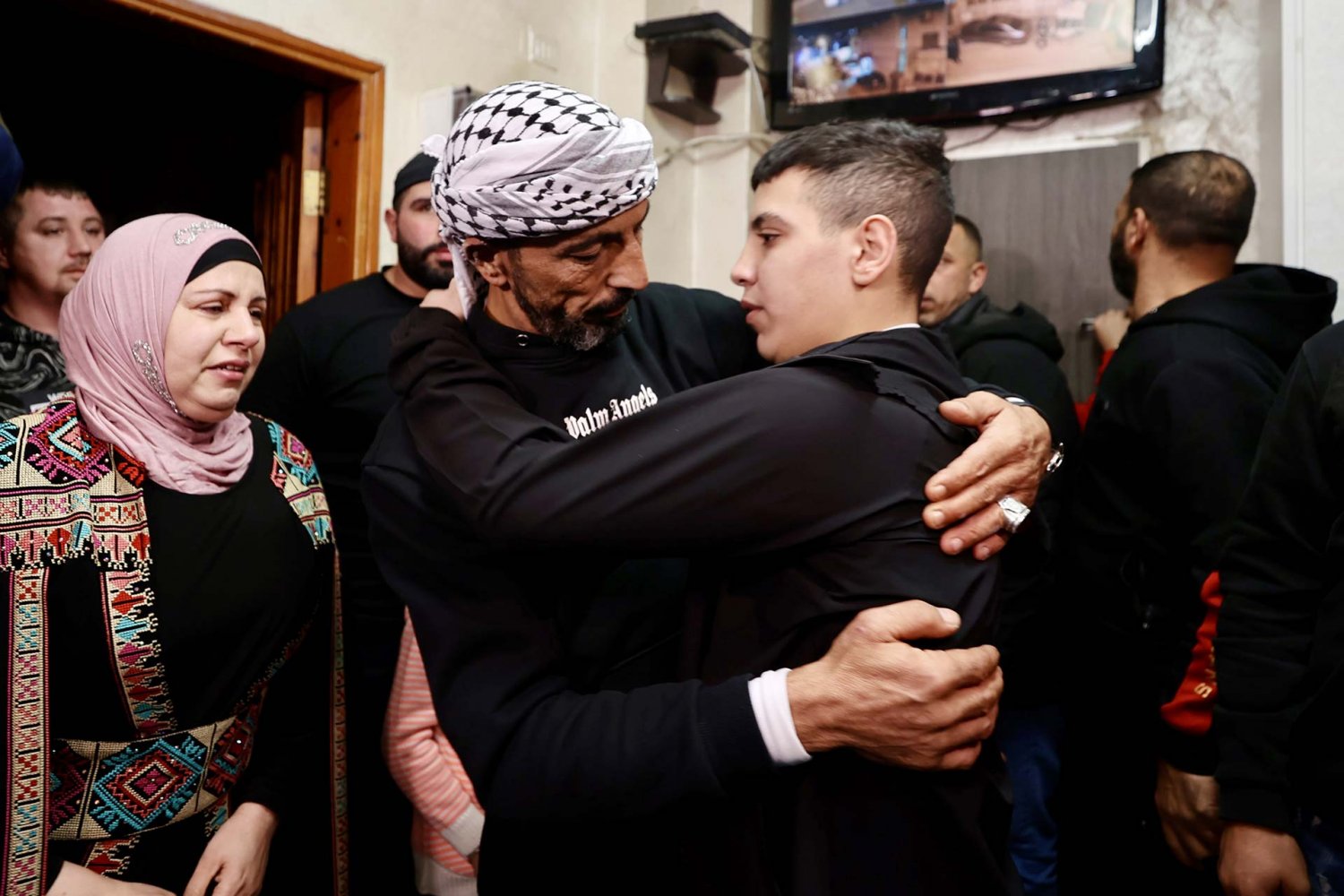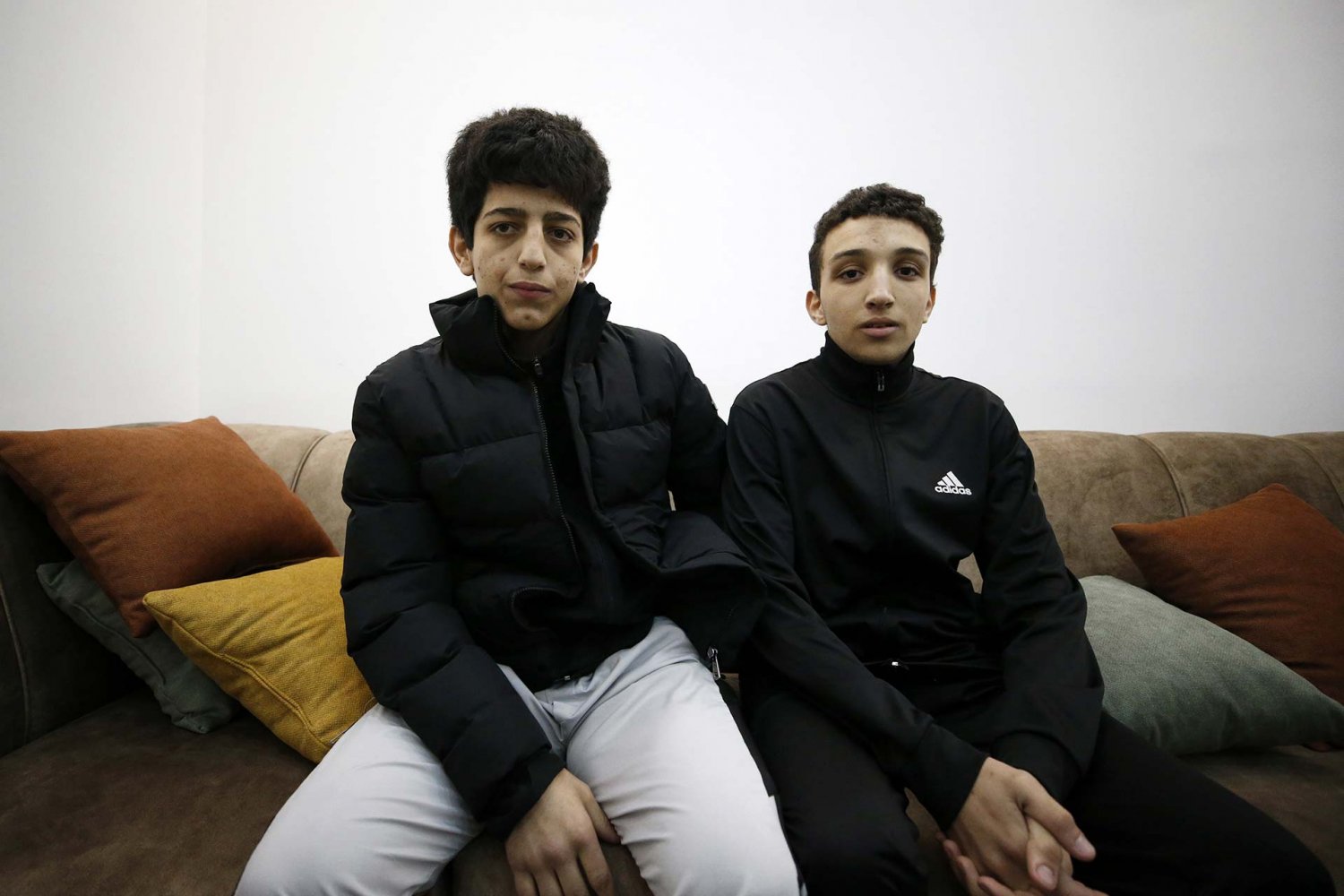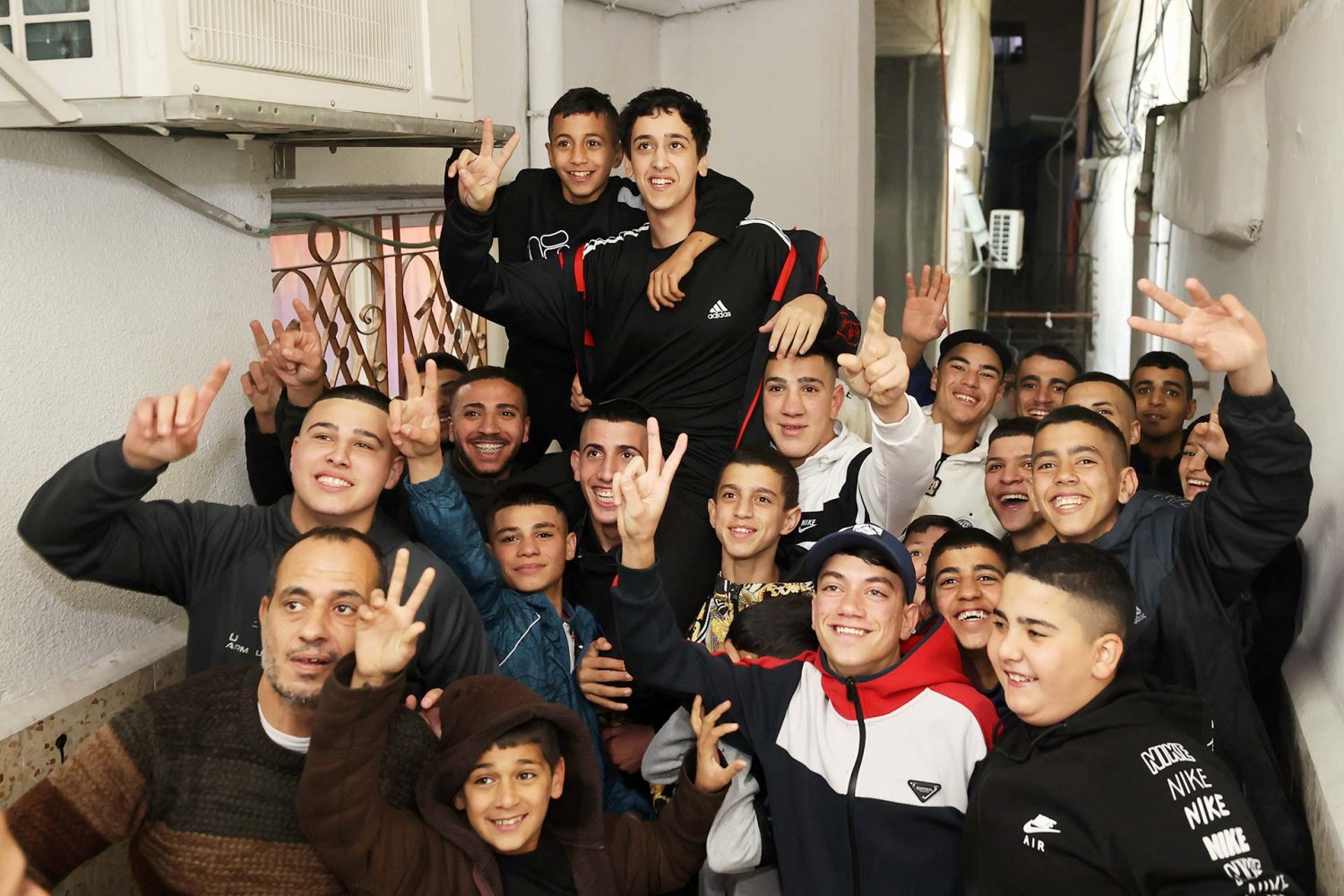After lengthy negotiations, 180 Palestinian prisoners have been released from Israeli prisons, between November 24 and 28, 2023, in exchange for 82 prisoners of Israeli and other nationalities who were being held in Gaza following the October 7 Operation al-Aqsa Flood and Israel’s war on Gaza.1
Among the released Palestinian prisoners, 64 are Jerusalemites from various East Jerusalem neighborhoods and towns, including Sheikh Jarrah, Silwan, and Sur Bahir.2 The Jerusalemite prisoners released so far (as of this writing) include about 20 women and 44 children who were being tried in military courts and held in military prisons in violation of children’s rights conventions.3 An analysis by NBC News of the list of 300 Palestinian prisoners slated for release found that 80 percent were not convicted of any crimes. Some were simply abducted from their homes in the dead of night for no stated reasons.4 Their purported offenses range from assembling or association, incitement (e.g. on social media), throwing stones, “state security offenses,” support for terrorism, damaging property, assault on police officers, membership in or service to an illegal organization, throwing stones, throwing bombs/molotov cocktails, stabbing, attempted murder. Many were being held under administrative detention, without any charges or access to lawyers or legal processes.5
This album compiles just a few selected stories of individuals released as part of the hostage-prisoner swap between Hamas and Israel in the midst of a temporary pause in fighting during the war on Gaza from November 24 to 30, 2023.
Upon their release, Palestinian prisoners talked about the dire prison conditions they had been subjected to, which included ill-treatment, humiliation, beatings multiple times per day, starvation, withholding medical treatment even for severe injuries, solitary confinement, exposure to cold without proper clothing, confiscation of mattresses and sleeping blankets, and overcrowding. After October 7, they reported, the treatment was much harsher than it had been previously.
According to statements by released prisoners and their families, Israeli authorities are banning any forms of public celebration and the waving of Palestinian flags as the prisoners return home. In East Jerusalem, Israeli police and security forces stormed into the homes of prisoners who were scheduled for release; they warned their families not to host celebratory gatherings and threatened to rearrest their loved ones if they did. In many instances, Israeli forces ordered media correspondents as well as neighbors and relatives to leave the prisoners’ houses and confiscated sweets, which are usually shared in celebration.
After months (for many, years) spent in the Israeli prisons of Damon, Ketziot (Naqab), al-Moskobiyya, and others, we see in these pictures Palestinian women and children returning home and reuniting with their families in East Jerusalem.
Despite the joy of regaining their freedom, they all expressed their sorrow for the Palestinian lives lost in Gaza, as well as the thousands of Palestinian prisoners who remain behind bars. They are well aware that at any time they themselves can be rearrested under false accusations (or no accusations at all), held without trial, or subjected to a trial based on secret evidence, forced confessions, and other procedures that abrogate any type of due process.

